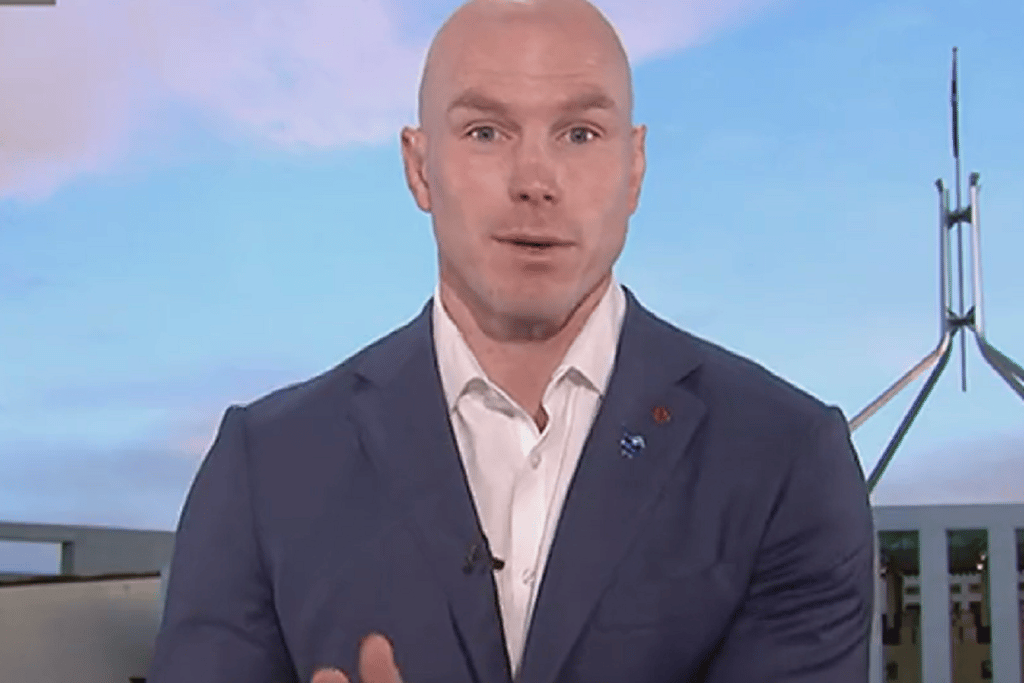Senator David Pocock has long described himself as a feminist and was campaigning on the issues he cared about, even while still playing professional rugby.
The former Wallabies captain turned Senator is also known as an environmentalist and marriage equality activist, with him and his now wife refusing to legally wed until such equality had been achieved. He was described as “the best athlete Americans have never heard of” by The Atlantic in 2019, for his work both on and off the field. The piece notes his anti-poaching and conservationist work in his birth country of Zimbabwe, as well as once chaining himself to mining equipment in NSW to protest a new coal mine.
He ran as an independent at the May election after initially thinking politics wasn’t for him, but later deciding parliament needs “people who are not politicians”.
Now, he’s emerging as a very effective politician and one of the most powerful people in Parliament, after negotiating with the Albanese Government to strike a deal on industrial relations reform.
Pocock’s support, which comes after he negotiated in further safeguards for small and medium-sized businesses and regular reviews of welfare payments, means the bill is likely to pass by the end of the year.
He has negotiated for mechanisms that could see a rise in the jobseeker payments, as well as other cost of living support, via an “economic inclusion advisory committee”. Labor’s IR minister Tony Burke says this would include exploring the adequacy of parenting payments, among other things. Pocock has also locked in the advisory committee to provide expert advice that will be made publicly available prior to each federal budget, outlining how Australia’s most vulnerable people are faring and making recommendations on what should be done.
Pocock said in a statement that the measures negotiated will support people in “receiving long overdue wage rises”, while also maintaining business productivity and helping to protect those who are vulnerable.
“It is better for business, better for workers, and makes sure the most vulnerable in our community are no longer left behind,” he said on the negotiated bill.
He later told the ABC that there will be a “clearer pathway for raising Jobseeker and single parent payments in the future, by having advice before every budget.”
The reform looks set to support gender equality, particularly in enabling new mechanisms for women in lower-paid sectors to participate in bargaining that can result in better and fairer wages. Senator Pocock himself said it’d be a “game changer” for those on the poverty line.
Also helpful within the new bill are the changes The Greens were able to negotiate on parental leave, which will see workers given the right to request unpaid parental leave.
Pocock’s wide-ranging agreement with Labor will see the definition of a small business lifted from 15 to 20 employees, meaning those with less than 20 employees will not be required to participate in multi-employer bargaining. Those businesses with less than 50 employees will also have additional safeguards, under the changes.
Prime Minister Anthony Albanese called the outcome a “huge day for working people” with the crossbench support achieved for the bill. He said the changes will “guarantee more secure work and better pay”, and ultimately help ensure “there’s a more level playing field”.
Not everyone is happy with Pocock’s negotiated changes, but that’s politics. The Senator told ABC Radio National this morning that he’s not here to represent big business, but rather to listen to different perspectives and make a decision.
And while he doesn’t believe the bill will “guarantee” that wages will go up, he said he’s happy with where it’s landed and that they now have a bill that sets out to do something.
This week looks set to be a productive one in parliament, a refreshing shift from the final weeks of the year from the past few November/December periods. It’s likely the national anti-corruption commission bill will pass, thanks to the support of the crossbench, along with the voluntary assisted dying bill.
It helps to have people in Parliament who actually want to get something done.



